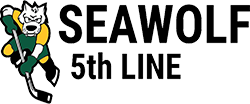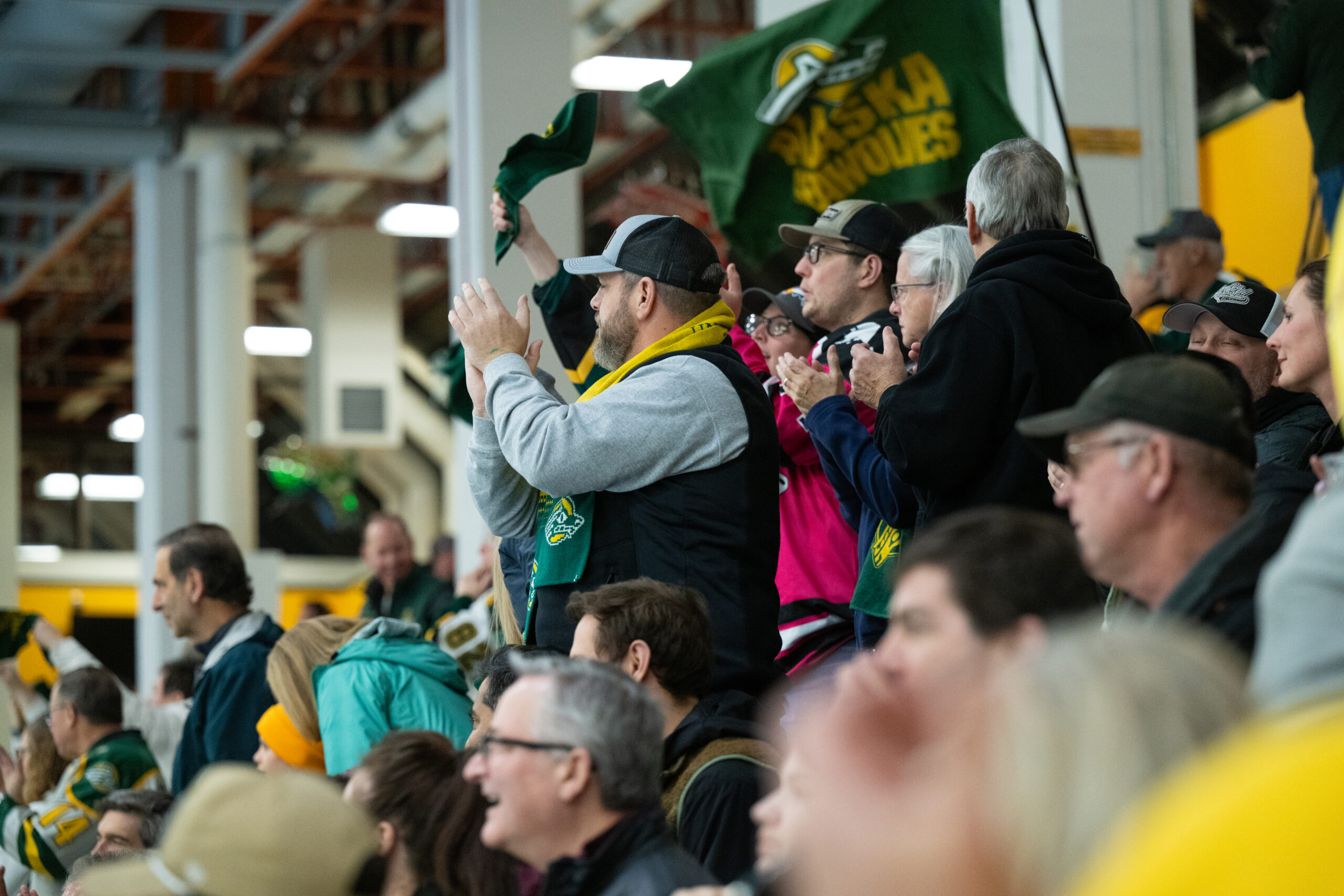For almost as long as UAA has been around, Seawolf hockey has been the center of the university.
By Avery Williamson
The University of Alaska Anchorage was established in 1954, five years before Alaska officially became a state. Two decades later, Seawolf hockey was born. Since then, hockey has played an integral part in UAA’s history.
Hockey was added to UAA as a club sport in 1973. Back then, they were known as the UAA Sourdoughs. Their first game was against National Bank of Alaska in the Anchorage Senior League.
A few short years later, in 1979, the team began competing as an NCAA Division II hockey program and then became known as the Seawolves. They played 31 games, facing off against–and beating–in-state rivals the University of Alaska Fairbanks eight times. For the 1981-82 season, UAA continued to play as a NCAA Division II hockey program. According to recorders from the 1981-82 season, the hockey budget was only $52,000, which included the coach’s salary.
It didn’t take long for hockey to truly become the center of the community. Anchorage residents quickly realized the team was full of high-caliber athletes and began spending their weekends watching the Seawolves.
“Watching hockey just became the thing to do on a Friday and Saturday night,” said Seawolf 5th Line chairperson Kathie Bethard.
After securing their first winning record during the 1982-83 season, the Seawolves were scheduled to compete in the NCAA Division II Ice Hockey Championship. However, they were later denied participation following an NCAA violation by the university’s swim team.
That summer, hockey at the Division II level collapsed due to a lack of sponsorship. Many teams dropped down to Division III, but the Seawolves were on the rise and moved up to Division I. Without a conference at the Division I level, the team competed as an independent school for the next two seasons.
It was also during this year that the Seawolves moved to the Sullivan Arena and hockey grew even larger in Anchorage as more home games were scheduled.
“The first thing that we did that actually brought huge attention to the team was when we brought the U.S. national team up here,” said Bethard. “That promoted hockey in this town and it became a really big deal. In fact, the U.S. team that won the Olympics in the 1980s played a game here right before they went to the Olympics. People got to see and meet all those players.”
After grabbing Anchorage’s attention with an Olympic team, “the next thing that we did to draw large crowds was we started the First Interstate Classic,” remembered Bethard. “First Interstate Bank of Alaska sponsored the first tournament and we sold the Sullivan Arena out with their help. From there, attendance took off.”
Word traveled from Anchorage to the Lower 48 that the Seawolves were a competitive team, and they quickly found three other teams to create a conference with them. In 1985, the Seawolves became a founding member–along with the University of Alaska Fairbanks, Northern Arizona University and the US International University–of the first West Coast conference, known as the Great West Hockey Conference.
In the GWHC’s first season, teams played a 12-game schedule, with U.S. International winning the league’s first championship. The four-team conference was shortlived, however, the following season Northern Arizona dropped its hockey program because its ice rink needed numerous repairs.
UAA, UAF and U.S. International played two more seasons after this in the three-team conference, with the Seawolves winning their first league title in the 1986-87 championship.
There were plans to add six more teams to the GWHC the following season, but none of the invited teams joined. At the end of that next season, the conference dissolved when U.S. International dropped its hockey program due to high travel costs.
Once again, the Seawolves were independents and competed this way for five years. During the 1989-90 season, UAA posted its first 20-win season at the Division I level and was selected to the NCAA tournament. Lake Superior State knocked the Seawolves out in the first round.
By this time, college hockey was synonymous with life in Anchorage. The Seawolves were averaging 6,180 fans at every game and had over 173,000 attendance for the season.
The Seawolves built on their success the following year. They returned to the NCAA tournament and defeated Boston College, winning their first NCAA round. They were bumped out of the quarter-finals by Northern Michigan University.
It was an electrifying time to be a Seawolf fan. Games were packed with people and excitement.
“You literally could not hear yourself think,” laughed Bethard. “It was so loud the floor shook and the chants of ‘U….A….A….’ could be heard outside the arena by latecomers entering the building. Ticket scalpers stood outside selling tickets for exorbitant prices, well over the $15/seat that was the normal charge.”
The excitement continued in Anchorage as the Seawolves grabbed their third consecutive NCAA berth with a 27-8-1 record during the 1991-92 season. During the first round, the team fell to Lake Superior University once again.
In 1993, UAA joined the Western Collegiate Hockey Association (WCHA). This was the Seawolves’ home for nearly three decades, until 2019 when budget cuts had the program return to the on-campus arena. The following year, the hockey program was dropped completely.
The Anchorage community then banded together to raise over $3 million to save Seawolf hockey. To fans’ delight, the university announced that hockey was reinstated and the team returned to the ice for the 2022-23 season.
Though its conference has often been uncertain, Seawolf hockey has always been a key feature of UAA.
“The temporary loss of the program really opened the eyes of this community to see how much of an impact the program has on our state,” said Bethard.
Since reinstatement, the hockey program has regained its prominence at UAA.
“I believe this team has invigorated the entire student body and brought excitement to campus,” said Bethard. “This is evident by the sell-out student section that we draw to each home game.”
While hockey may have faced many uncertainties in the past, one thing is for sure: it’s not UAA without Seawolf hockey.
UP NEXT
The Seawolves return to the ice on Jan. 13 to take on Alaska Fairbanks in Fairbanks.
Anchorage fans are encouraged to join the official watch party at Las Margaritas, located at 541 W. Dimond Blvd.

